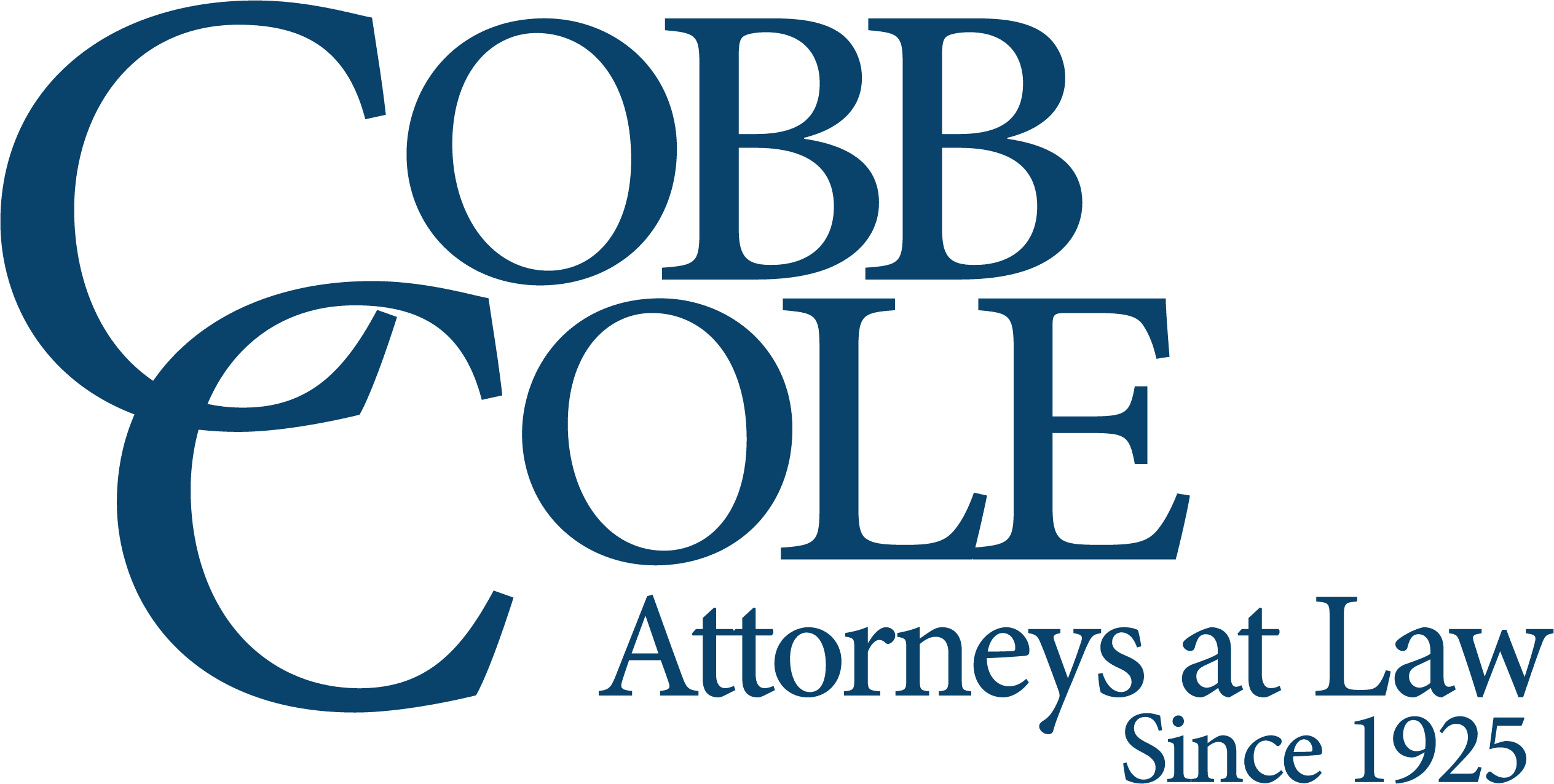Recent changes to Florida’s statutes regarding construction defect claims affect how property owners can file claims. Effective April 13, 2023, but not scheduled to take effect until July 1, 2024, these changes should be reviewed by all property owners to understand their scope and how they might affect the possibility of a claim.
We’ve compiled some of the main points you should know, including ways to avoid defect claims and how Cobb Cole’s Construction Law team can help your firm address new rules, potential litigation, and other legal matters while protecting your interests.
What Are Construction Defect Claims in Florida?
Construction is a high-risk industry in many ways, including when legal disputes arise over alleged flaws or deficiencies in a project’s design, materials, or performance. From water leaks to structural issues and allegations of substandard work, construction defects occur whenever full or partially completed construction fails to perform as required by contracts or accepted standards.
The most dangerous defects can result in physical injury or property damage. While some defects do not increase these risks, they can nevertheless harm property owners through a loss of use and extra expenses incurred while defects are corrected or litigation drags on.
The two main types of construction defects are:
- Obvious defects. Undersized beams, coating failures, and understrength concrete that are typically apparent during construction are often referred to as obvious defects.
- Latent defects. Some defects exist at the time of construction but don’t become apparent until after construction is completed, sometimes years later. For instance, water may be slowly leaking through the walls but it is not discovered until mold growth becomes apparent years later. Some latent defects gradually worsen as the structure or systems experience wear and tear or natural forces.
How to Avoid Construction Defect Claims
The many types of construction defects include but aren’t limited to:
- Water leaks can cause significant damage to a structure’s integrity and lead to mold growth and other moisture-related problems.
- Foundation movement can compromise a building’s stability and lead to uneven floors, cracked walls, or other structural problems.
- Cracking, scaling, or spalling concrete sometimes indicates underlying issues with the concrete mix or exposure to harsh environmental conditions.
- Flooding can result in extensive water damage, weakening a structure’s foundation and creating a breeding ground for mildew and mold.
- Major structural issues, including issues with framing or other structural issues such as collapsing walls and sagging roofs.
Common damages in defect claims include costs to inspect and repair and costs to repair property damage other than the defective work itself, such as repairing flooring or walls damaged by a defective roof.
Florida statutes and contracts between parties typically outline a builder’s or property owner’s legal obligations, including notice requirements and timelines for filing a construction defect claim. Understanding these laws helps project owners, construction firms, and design firms take proactive steps to address potential defects before they escalate into legal disputes.
Review Your Contract
Before launching a construction project in Florida, review your contract thoroughly to ensure it:
- Clearly defines the scope of work.
- Sets out timelines and payment terms.
- Lists responsibilities of all parties.
Pay special attention to clauses related to defect liability and warranty periods. A well-drafted contract provides a solid foundation for the project, helping you avoid misunderstandings that could lead to disputes and legal issues down the line.
Quality Control
A comprehensive quality control program is critical in preventing construction defects. This can include regular inspections, adherence to building codes and standards, and using quality materials and skilled labor. In Florida, where weather conditions can be harsh, covering aspects such as waterproofing and wind resistance are also vital. By prioritizing quality control, construction and design firms can minimize the risk of defects and enhance a structure’s overall durability and safety.
Follow Florida Defect Law
It’s essential to stay updated on any changes in legislation that might impact your firm’s responsibilities and liabilities. For instance, Florida has two statutes that limit the time in which a construction defect claim can be reported. SB 360, which goes into effect in July 2024, provides greater protection for contractors and design professionals by:
- Reducing what’s known as the “statute of repose” for construction defect claims from ten to seven years. This means building owners may not bring defect claims seven years after the project’s completion, even if the owner was unaware of a defect.
- Consider each building in a multi-building project as a separate project for statute of limitations purposes.
- Imposing a new “materiality” requirement requiring claimants to demonstrate a building code violation was a material factor in causing an alleged defect.
- Changing when the “clock starts ticking” for filing claims. The old rule sets the start date as when an owner gets possession of the property or when the construction contract is finished. The new rule is from the earliest of either (1) when the building gets a temporary or permanent certificate of occupancy; (2) at the completion of the building; or (3) at construction abandonment, even without completion.
Work With a Cobb Cole Construction Law Attorney
Consulting with a construction law firm provides invaluable guidance throughout a project’s design and construction phases. A seasoned lawyer can help you successfully navigate Florida’s complex and frequently changing construction defect laws, review and negotiate contracts, and develop strategies to minimize legal risks. If a defect claim does arise, the legal representation they provide ensures your interests are adequately protected.
Cobb Cole’s legal team thoroughly understands the unique challenges Florida’s design and construction firms face. We offer a proactive approach to risk management for any size project and, if necessary, engage in settlement negotiations or seek to resolve defect disputes through alternative means, including mediation.
Talk to one of our dedicated professionals today to further discuss how our Firm can support your goals, legal rights, and financial interests.

